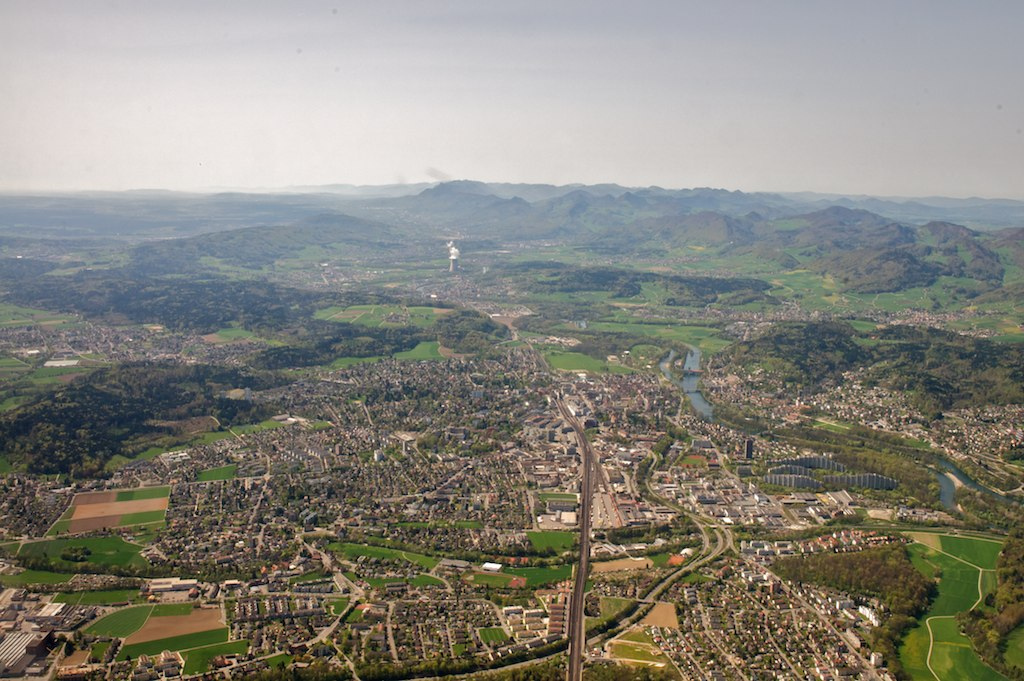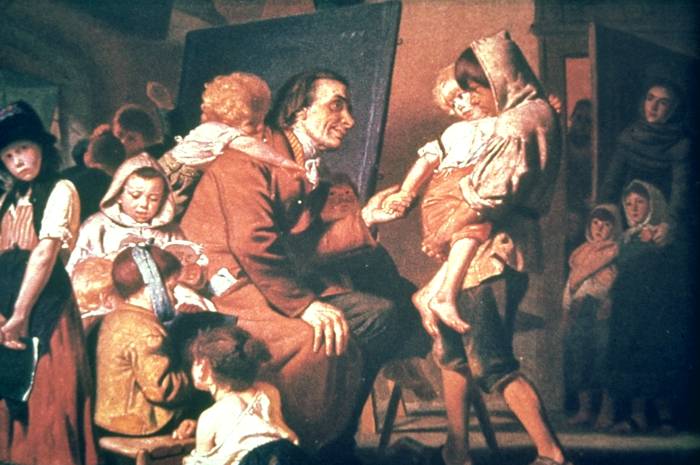|
Goswin Karl Uphues
Goswin Karl Uphues (13 March 1841 – 10 September 1916) was a German philosopher. He taught at a '' gymnasium'' in Aarau before becoming a professor at the University of Halle. A collection of papers published by Uphues between 1869 and 1882 was edited by Kurt Flasch in 1973. Works * ''Die definition des satzes: nach den Platonischen dialogen Kratylus, Theaetet. Sophistes'', 1882. * ''Grundlehren der logik. Nach Richard Shute's Discourse on truth'', 1883. * ''Wahrnehmung und Empfindung. Untersuchungen zur empirischen Psychologie'', 1888. * ''Über die Erinnerung: Untersuchungen zur empirischen Psychologie'', 1889. * ''Psychologie des Erkennens vom empirischen Standpunkte'', 1893. * ''Sokrates und Pestalozzi: zwei Vorträge bei Gelegenheit der Pestalozzifeier'', 1896. * ''Einführung in die moderne Logik'', 1901. * ''Zur Krisis in der Logik. Eine Auseinandersetzung mit Dr. Melchior Palágyi'', 1903. * ''Kant und seine Vorgänger. Was wir von ihnen lernen können'', 1906. * ''E ... [...More Info...] [...Related Items...] OR: [Wikipedia] [Google] [Baidu] |
Gymnasium (school)
''Gymnasium'' (and variations of the word) is a term in various European languages for a secondary school that prepares students for higher education at a university. It is comparable to the US English term '' preparatory high school''. Before the 20th century, the gymnasium system was a widespread feature of educational systems throughout many European countries. The word (), from Greek () 'naked' or 'nude', was first used in Ancient Greece, in the sense of a place for both physical and intellectual education of young men. The latter meaning of a place of intellectual education persisted in many European languages (including Albanian, Bulgarian, Estonian, Greek, German, Hungarian, the Scandinavian languages, Dutch, Polish, Czech, Serbo-Croatian, Macedonian, Slovak, Slovenian and Russian), whereas in other languages, like English (''gymnasium'', ''gym'') and Spanish (''gimnasio''), the former meaning of a place for physical education was retained. School structure Be ... [...More Info...] [...Related Items...] OR: [Wikipedia] [Google] [Baidu] |
Plato
Plato ( ; grc-gre, Πλάτων ; 428/427 or 424/423 – 348/347 BC) was a Greek philosopher born in Athens during the Classical period in Ancient Greece. He founded the Platonist school of thought and the Academy, the first institution of higher learning on the European continent. Along with his teacher, Socrates, and his student, Aristotle, Plato is a central figure in the history of Ancient Greek philosophy and the Western and Middle Eastern philosophies descended from it. He has also shaped religion and spirituality. The so-called neoplatonism of his interpreter Plotinus greatly influenced both Christianity (through Church Fathers such as Augustine) and Islamic philosophy (through e.g. Al-Farabi). In modern times, Friedrich Nietzsche diagnosed Western culture as growing in the shadow of Plato (famously calling Christianity "Platonism for the masses"), while Alfred North Whitehead famously said: "the safest general characterization of the European philosophical tra ... [...More Info...] [...Related Items...] OR: [Wikipedia] [Google] [Baidu] |
Metaphysicians
Metaphysics is the branch of philosophy that studies the fundamental nature of reality, the first principles of being, identity and change, space and time, causality, necessity, and possibility. It includes questions about the nature of consciousness and the relationship between mind and matter, between substance and attribute, and between potentiality and actuality. The word "metaphysics" comes from two Greek words that, together, literally mean "after or behind or among he study ofthe natural". It has been suggested that the term might have been coined by a first century CE editor who assembled various small selections of Aristotle's works into the treatise we now know by the name ''Metaphysics'' (μετὰ τὰ φυσικά, ''meta ta physika'', 'after the ''Physics'' ', another of Aristotle's works). Metaphysics studies questions related to what it is for something to exist and what types of existence there are. Metaphysics seeks to answer, in an abstract and ful ... [...More Info...] [...Related Items...] OR: [Wikipedia] [Google] [Baidu] |
German Logicians
German(s) may refer to: * Germany (of or related to) **Germania (historical use) * Germans, citizens of Germany, people of German ancestry, or native speakers of the German language ** For citizens of Germany, see also German nationality law **Germanic peoples (Roman times) * German language **any of the Germanic languages * German cuisine, traditional foods of Germany People * German (given name) * German (surname) * Germán, a Spanish name Places * German (parish), Isle of Man * German, Albania, or Gërmej * German, Bulgaria * German, Iran * German, North Macedonia * German, New York, U.S. * Agios Germanos, Greece Other uses * German (mythology), a South Slavic mythological being * Germans (band), a Canadian rock band * "German" (song), a 2019 song by No Money Enterprise * ''The German'', a 2008 short film * "The Germans", an episode of ''Fawlty Towers'' * ''The German'', a nickname for Congolese rebel André Kisase Ngandu See also * Germanic (other) * Germa ... [...More Info...] [...Related Items...] OR: [Wikipedia] [Google] [Baidu] |
19th-century Philosophers
The 19th (nineteenth) century began on 1 January 1801 ( MDCCCI), and ended on 31 December 1900 ( MCM). The 19th century was the ninth century of the 2nd millennium. The 19th century was characterized by vast social upheaval. Slavery was abolished in much of Europe and the Americas. The First Industrial Revolution, though it began in the late 18th century, expanding beyond its British homeland for the first time during this century, particularly remaking the economies and societies of the Low Countries, the Rhineland, Northern Italy, and the Northeastern United States. A few decades later, the Second Industrial Revolution led to ever more massive urbanization and much higher levels of productivity, profit, and prosperity, a pattern that continued into the 20th century. The Islamic gunpowder empires fell into decline and European imperialism brought much of South Asia, Southeast Asia, and almost all of Africa under colonial rule. It was also marked by the collapse of the la ... [...More Info...] [...Related Items...] OR: [Wikipedia] [Google] [Baidu] |
1916 Deaths
Events Below, the events of the First World War have the "WWI" prefix. January * January 1 – The British Royal Army Medical Corps carries out the first successful blood transfusion, using blood that had been stored and cooled. * January 9 – WWI: Gallipoli Campaign: The last British troops are evacuated from Gallipoli, as the Ottoman Empire prevails over a joint British and French operation to capture Constantinople. * January 10 – WWI: Erzurum Offensive: Russia defeats the Ottoman Empire. * January 12 – The Gilbert and Ellice Islands Colony, part of the British Empire, is established in present-day Tuvalu and Kiribati. * January 13 – WWI: Battle of Wadi: Ottoman Empire forces defeat the British, during the Mesopotamian campaign in modern-day Iraq. * January 29 – WWI: Paris is bombed by German zeppelins. * January 31 – WWI: An attack is planned on Verdun, France. February * February 9 – 6.00 p.m. – Tristan Tz ... [...More Info...] [...Related Items...] OR: [Wikipedia] [Google] [Baidu] |
1841 Births
Events January–March * January 20 – Charles Elliot of the United Kingdom, and Qishan of the Qing dynasty, agree to the Convention of Chuenpi. * January 26 – Britain occupies Hong Kong. Later in the year, the first census of the island records a population of about 7,500. * January 27 – The active volcano Mount Erebus in Antarctica is discovered, and named by James Clark Ross. * January 28 – Ross discovers the "Victoria Barrier", later known as the Ross Ice Shelf. On the same voyage, he discovers the Ross Sea, Victoria Land and Mount Terror. * January 30 – A fire ruins and destroys two-thirds of the villa (modern-day city) of Mayagüez, Puerto Rico. * February 4 – First known reference to Groundhog Day in North America, in the diary of a James Morris. * February 10 – The Act of Union (''British North America Act'', 1840) is proclaimed in Canada. * February 11 – The two colonies of the Canadas are merged, into the United Province of Canada. * February ... [...More Info...] [...Related Items...] OR: [Wikipedia] [Google] [Baidu] |
Aristotle
Aristotle (; grc-gre, Ἀριστοτέλης ''Aristotélēs'', ; 384–322 BC) was a Greek philosopher and polymath during the Classical period in Ancient Greece. Taught by Plato, he was the founder of the Peripatetic school of philosophy within the Lyceum and the wider Aristotelian tradition. His writings cover many subjects including physics, biology, zoology, metaphysics, logic, ethics, aesthetics, poetry, theatre, music, rhetoric, psychology, linguistics, economics, politics, meteorology, geology, and government. Aristotle provided a complex synthesis of the various philosophies existing prior to him. It was above all from his teachings that the West inherited its intellectual lexicon, as well as problems and methods of inquiry. As a result, his philosophy has exerted a unique influence on almost every form of knowledge in the West and it continues to be a subject of contemporary philosophical discussion. Little is known about his life. Aristotle was born in th ... [...More Info...] [...Related Items...] OR: [Wikipedia] [Google] [Baidu] |
Melchior Palágyi
Melchior is the name traditionally given to one of the biblical Magi appearing in the Gospel of Matthew. There are many notable people with this name, or close variations. As a first name * Melchior Anderegg (1828–1914), Swiss mountain guide * Melchior Berri (1801–1854), Swiss architect * Melchior Broederlam (c. 1350 – after 1409), Dutch painter * Melchior Cano (1525–1560), Spanish theologian * Melchior Cibinensis, 16th century Hungarian alchemical writer * Melchior Goldast (1576–1635), Swiss writer * Melchior d'Hondecoeter (1636–1695), Dutch animalier * Melchior de Polignac (1661–1742), French diplomat, Roman Catholic cardinal * Melchior de Vogüé (1848–1910), French diplomat, travel writer, archaeologist, philanthropist * Melchior Franck (1579–1639), German composer * Melchior Grodziecki (1584–1619), Catholic saint * Melchior Hoffman (c. 1495–1543), German-Dutch Anabaptist prophet * Melchior Inchofer (c. 1584–1648), Jesuit who took part in Galileo's tria ... [...More Info...] [...Related Items...] OR: [Wikipedia] [Google] [Baidu] |
Aarau
Aarau (, ) is a List of towns in Switzerland, town, a Municipalities of Switzerland, municipality, and the capital of the northern Swiss Cantons of Switzerland, canton of Aargau. The List of towns in Switzerland, town is also the capital of the district of Aarau (district), Aarau. It is German-speaking and predominantly Protestant. Aarau is situated on the Swiss plateau, in the valley of the Aare, on the river's right bank, and at the southern foot of the Jura Mountains, and is west of Zürich, south of Basel and northeast of Bern. The municipality borders directly on the canton of Solothurn to the west. It is the largest town in Aargau. At the beginning of 2010 Rohr, Aargau, Rohr became a district of Aarau. The official language of Aarau is (the Swiss variety of Standard) Swiss Standard German, German, but the main spoken language is the local variant of the Alemannic German, Alemannic Swiss German (linguistics), Swiss German dialect. Geography and geology The old city of Aarau ... [...More Info...] [...Related Items...] OR: [Wikipedia] [Google] [Baidu] |
Johann Heinrich Pestalozzi
Johann Heinrich Pestalozzi (, ; 12 January 1746 – 17 February 1827) was a Swiss pedagogue and educational reformer who exemplified Romanticism in his approach. He founded several educational institutions both in German- and French-speaking regions of Switzerland and wrote many works explaining his revolutionary modern principles of education. His motto was "Learning by head, hand and heart". Thanks to Pestalozzi, illiteracy in 18th-century Switzerland was overcome almost completely by 1830. Life Early years – 1746–1765 Pestalozzi was born on 12 January 1746, in Zürich, Switzerland. His father was a surgeon and oculist who died at age 33 when Pestalozzi, the second of three children, was five years old; he belonged to a family who had fled the area around Locarno due to its Protestant faith. His mother, whose maiden name was Hotze, was a native of Wädenswil on the lake of Zürich. The family also had a maid, Barbara Schmid, nicknamed Babeli. After the death of Pestalo ... [...More Info...] [...Related Items...] OR: [Wikipedia] [Google] [Baidu] |







